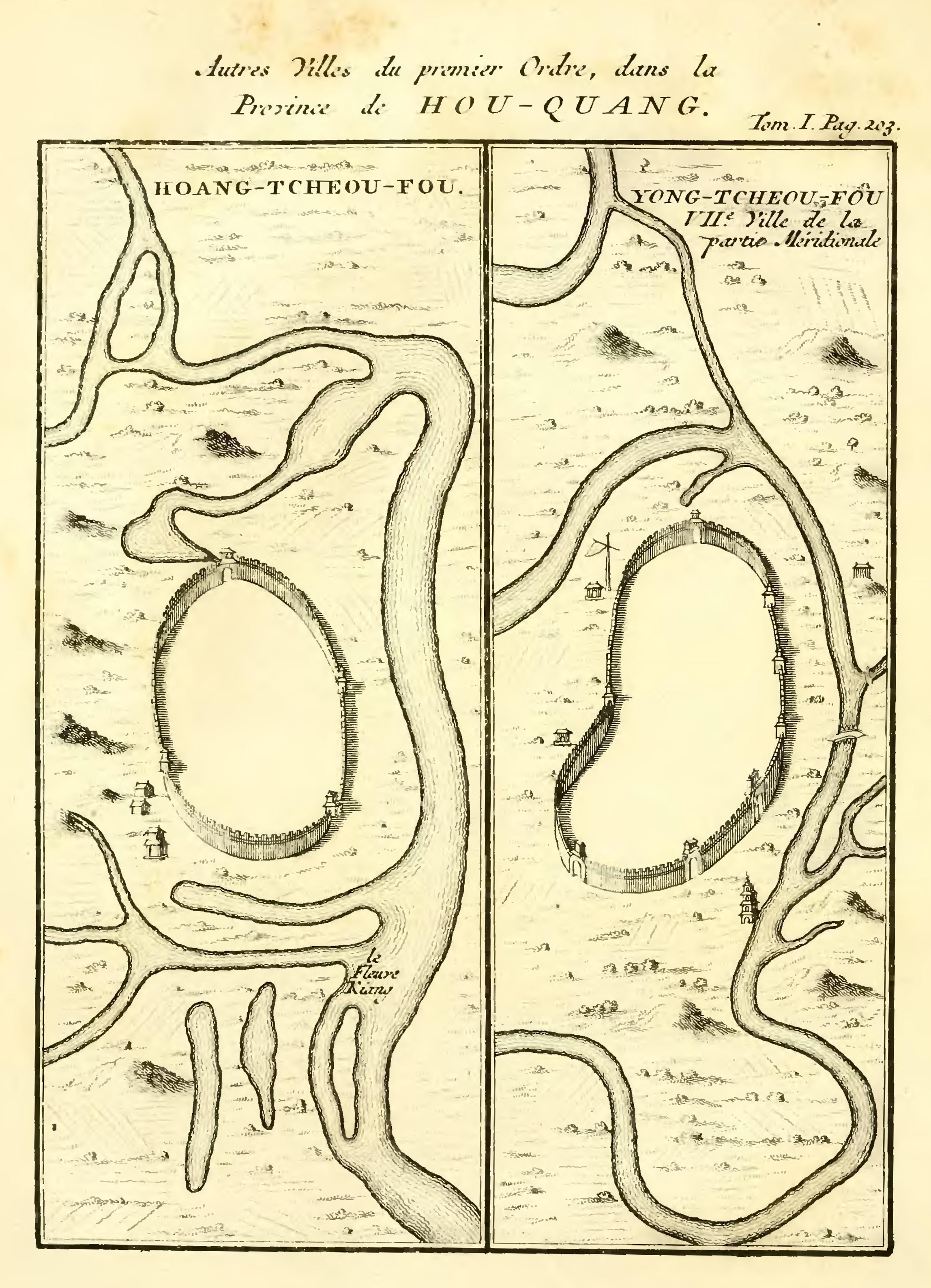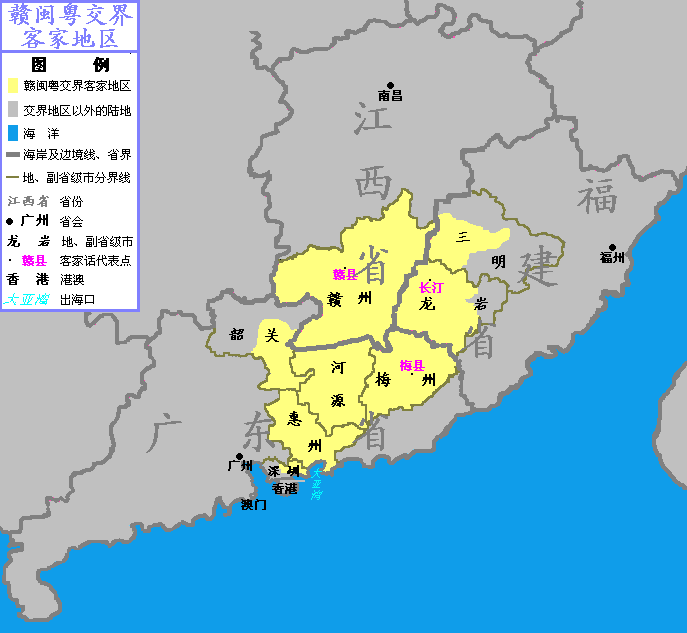|
Cui Hang
Cui Hang (崔沆) (died January 24, 881), courtesy name Neirong (內融), was an official of the History of China, Chinese dynasty Tang Dynasty, serving as a chancellor of Tang Dynasty, chancellor during the reign of Emperor Xizong of Tang, Emperor Xizong. When the agrarian rebel Huang Chao captured the Tang capital Chang'an, Cui was unable to flee; he was then executed by Huang's new state of Qi. Background It is not known when Cui Hang was born. He was from the "Elder Boling branch" of the Cui clan of Boling (博陵, in modern Hengshui, Hebei), and his father Cui Xuan served as a chancellor of Tang Dynasty, chancellor during the reigns of Emperor Wuzong of Tang, Emperor Wuzong and Emperor Wuzong's uncle Emperor Xuānzong of Tang, Emperor Xuānzong. He had at least four younger brothers, Cui Ting (崔汀), Cui Tan (崔潭), Cui Yi (崔沂), and Cui Ji (崔濟). Career prior to chancellorship At some point, Cui Hang passed the imperial examinations in the ''Jinshi'' class, ... [...More Info...] [...Related Items...] OR: [Wikipedia] [Google] [Baidu] |
Academia Sinica
Academia Sinica (AS, la, 1=Academia Sinica, 3=Chinese Academy; ), headquartered in Nangang, Taipei, is the national academy of Taiwan. Founded in Nanking, the academy supports research activities in a wide variety of disciplines, ranging from mathematical and physical sciences to life sciences, and to humanities and social sciences. As an educational institute, it provides PhD training and scholarship through its English-language Taiwan International Graduate Program in biology, agriculture, chemistry, physics, informatics, and earth and environmental sciences. Academia Sinica is ranked 144th in Nature Publishing Index - 2014 Global Top 200 and 18th in Reuters World's Most Innovative Research Institutions of 2019. The current president since 2016 is James C. Liao, an expert in metabolic engineering, systems biology and synthetic biology. History Academia Sinica, which means "Chinese Academy", was founded in 1928 in Nanking, then capital of the Republic of China, wit ... [...More Info...] [...Related Items...] OR: [Wikipedia] [Google] [Baidu] |
Doulu Zhuan
Doulu Zhuan (豆盧瑑) (died January 24, 881), courtesy name Xizhen (希真), was an official of the Chinese dynasty Tang Dynasty, serving as a chancellor during the reign of Emperor Xizong. When the agrarian rebel Huang Chao captured the Tang capital Chang'an, Doulu was unable to flee; he was then executed by Huang's new state of Qi. Background It is not known when Doulu Zhuan was born. His family was, according to the '' Old Book of Tang'', from the Hedong (河東) region'' Old Book of Tang'', vol. 177. — i.e., modern Shanxi — but, according to the '' New Book of Tang'', from Henan Municipality (河南) — i.e., the region of the Tang Dynasty eastern capital Luoyang.'' New Book of Tang'', vol. 183. All that was recorded about his ancestry was that his grandfather Doulu Yuan (豆盧願) and father Doulu Ji (豆盧籍) passed the imperial examinations in the ''Jinshi'' class, as the table of the chancellors' family trees in the ''New Book of Tang'' did not include ... [...More Info...] [...Related Items...] OR: [Wikipedia] [Google] [Baidu] |
Lu Xi
Lu Xie (盧攜) (died January 8, 881Academia Sinicabr>Chinese-Western Calendar Converter''Zizhi Tongjian'', vol. 254.), courtesy name Zisheng (子升), was an official of the Chinese dynasty Tang Dynasty, serving two terms as a chancellor during the reign of Emperor Xizong. Traditional historians often blamed his blind trust in the general Gao Pian's ability to suppress Huang Chao's rebellion for the eventual fall of the Tang capital Chang'an to Huang and the subsequent disintegration of the Tang state. Background and early career It is not known when Lu Xie was born. His family claimed to be originally from Fanyang, but had settled at Zheng Prefecture (鄭州, in modern Zhengzhou, Henan) by Lu Xi's time,''New Book of Tang'', vol. 184. and his family was not otherwise traceable to the bloodlines of the other chancellors named Lu. His grandfather Lu Sun (盧損) was not listed with any offices in the table of the chancellors' family trees in the ''New Book of Tang'', [...More Info...] [...Related Items...] OR: [Wikipedia] [Google] [Baidu] |
Zheng Tian
Zheng Tian (, 821?''New Book of Tang'', vol. 185./825?''Old Book of Tang'', vol. 178.–883?), courtesy name Taiwen (), formally Duke Wenzhao of Xingyang (), was a chancellor of late Tang Dynasty, serving two terms as chancellor during the reign of Emperor Xizong. He was heavily involved in the Tang campaign against the agrarian rebel Huang Chao and Huang Chao's state of Qi. Background and early career Assuming that Zheng Tian died in 883, he might have been born in either 821 or 825. He was a part of the prominent Zheng clan based in Xingyang (滎陽, in modern Zhengzhou, Henan), but his traceable ancestry only went as far back as his great-grandfather Zheng Shaolin (), who served as a civil service official under the prefect of Zheng Prefecture (鄭州, in modern Zhengzhou). http://www.sidneyluo.net/a/a17/table/form90.htm ''New B ... [...More Info...] [...Related Items...] OR: [Wikipedia] [Google] [Baidu] |
Hunan
Hunan (, ; ) is a landlocked province of the People's Republic of China, part of the South Central China region. Located in the middle reaches of the Yangtze watershed, it borders the province-level divisions of Hubei to the north, Jiangxi to the east, Guangdong and Guangxi to the south, Guizhou to the west and Chongqing to the northwest. Its capital and largest city is Changsha, which also abuts the Xiang River. Hengyang, Zhuzhou, and Yueyang are among its most populous urban cities. With a population of just over 66 million residing in an area of approximately , it is China's 7th most populous province, the fourth most populous among landlocked provinces, the second most populous in South Central China after Guangdong and the most populous province in Central China. It is the largest province in South-Central China and the fourth largest among landlocked provinces and the 10th most extensive province by area. Hunan's nominal GDP was US$ 724 billion (CNY 4.6 trillion) a ... [...More Info...] [...Related Items...] OR: [Wikipedia] [Google] [Baidu] |
Yongzhou
Yongzhou, formerly known as Lingling, is a prefecture-level city in the south of Hunan province, People's Republic of China, located on the southern bank of the Xiang River, which is formed by the confluence of the Xiao and Xiang Rivers, and bordering Guangdong to the southeast and Guangxi to the southwest. With a history of 2000 years, Yongzhou is one of the four ancient counties in Hunan. Its total area is , and at the 2020 Chinese census it had a total population of 5,289,824, of whom 1,146,692 lived in the built-up (or metro) area made of the 2 urban districts. History During late imperial China, Yongzhou was also the seat of a prefecture. Geography and climate Yongzhou is the southernmost prefecture-level division of Hunan, and is located at the confluence of the Xiao (Xiaoshui) and Xiang Rivers. Within its borders is the Nan Mountains (Nan Ling), which increases the complexity of climatic variation. It borders Chenzhou to the east, Hezhou (Guangxi), Guilin (Guangxi) an ... [...More Info...] [...Related Items...] OR: [Wikipedia] [Google] [Baidu] |
Guangdong
Guangdong (, ), alternatively romanized as Canton or Kwangtung, is a coastal province in South China on the north shore of the South China Sea. The capital of the province is Guangzhou. With a population of 126.01 million (as of 2020) across a total area of about , Guangdong is the most populous province of China and the 15th-largest by area as well as the second-most populous country subdivision in the world (after Uttar Pradesh in India). Its economy is larger than that of any other province in the nation and the fifth largest sub-national economy in the world with a GDP (nominal) of 1.95 trillion USD (12.4 trillion CNY) in 2021. The Pearl River Delta Economic Zone, a Chinese megalopolis, is a core for high technology, manufacturing and foreign trade. Located in this zone are two of the four top Chinese cities and the top two Chinese prefecture-level cities by GDP; Guangzhou, the capital of the province, and Shenzhen, the first special economic zone in the count ... [...More Info...] [...Related Items...] OR: [Wikipedia] [Google] [Baidu] |
Huizhou
Huizhou ( zh, c= ) is a city in central-east Guangdong Province, China, forty-three miles north of Hong Kong. Huizhou borders the provincial capital of Guangzhou to the west, Shenzhen and Dongguan to the southwest, Shaoguan to the north, Heyuan to the northeast, Shanwei to the east, and Daya Bay of the South China Sea to the south. As of the 2020 census, the city has about 6,042,852 inhabitants and is administered as a prefecture-level city. Huizhou's core metropolitan area, which is within Huicheng and Huiyang Districts, is home to around 2,090,578 inhabitants. History During the Song dynasty, Huizhou was a prefectural capital of the Huiyang prefecture and the cultural center of the region. The West Lake in Huizhou was formerly known as Feng Lake. At the age of 59, Su Shi was exiled to Huizhou by the imperial government of Song. When he visited Feng Lake in Huizhou, he found it located in the west of the city and was as beautiful as West Lake in Hangzhou. Therefore, he renam ... [...More Info...] [...Related Items...] OR: [Wikipedia] [Google] [Baidu] |
Zizhi Tongjian
''Zizhi Tongjian'' () is a pioneering reference work in Chinese historiography, published in 1084 AD during the Northern Song dynasty in the form of a chronicle recording Chinese history from 403 BC to 959 AD, covering 16 dynasties and spanning almost 1400 years. The main text is arranged into 294 scrolls (''juan'' , equivalent to a chapter) totaling about 3 million Chinese characters. In 1065 AD, Emperor Yingzong of Song commissioned his official Sima Guang (1019–1086 AD) to lead a project to compile a universal history of China, and granted him funding and the authority to appoint his own staff. His team took 19 years to complete the work and in 1084 AD it was presented to Emperor Yingzong's successor Emperor Shenzong of Song. It was well-received and has proved to be immensely influential among both scholars and the general public. Endymion Wilkinson regards it as reference quality: "It had an enormous influence on later Chinese historical wri ... [...More Info...] [...Related Items...] OR: [Wikipedia] [Google] [Baidu] |



